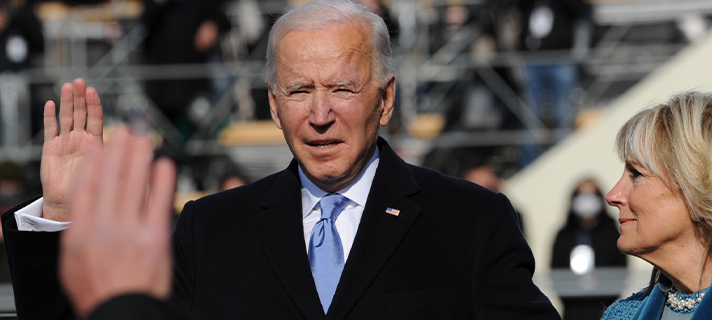Could a new U.S. administration influence Canada’s arms export policy?
In the run-up to the 2020 U.S. presidential election, Joe Biden pledged to end arms sales to countries fueling the war in Yemen—specifically, Saudi Arabia and the United Arab Emirates.
Only seven days into the Biden presidency, the U.S. government announced a hold on weapons worth tens of billions of dollars to these countries, including “precision-guided munitions” to Saudi Arabia and “F-35 fighter jets and armed drones” to the UAE. This action marks a significant departure from recent U.S. arms export policy.
North of the United States, little has changed. Canada continues to export weapons to both Saudi Arabia and the UAE.
If the United States, the world’s largest arms dealer, is willing to end some arms sales on humanitarian grounds, it will become more difficult for Canada to justify its own weapons exports. Perhaps, a new American resolve to restrict at least some arms sales could encourage Canada to adjust its own policy on arms exports.
ERODING U.S. SUPPORT FOR SAUDI ARABIA
The war that UN Secretary-General António Guterres calls the world’s worst humanitarian catastrophe has raged in Yemen since 2014. Begun when Houthi rebels forced President Hadi from the capital, the conflict has become a regional struggle between the Houthis and their supporters, thought to include Iran, and the Yemeni government that is supported by a Saudi-led coalition that includes the UAE. That coalition has received substantial military aid from the United States, the United Kingdom, and France.
The UN Group of Eminent Experts on Yemen has repeatedly said that those who export weapons to Saudi Arabia and its allies, including the United States, are facilitating the violence in Yemen. In 2020, for the first time, the group identified Canada as one of the countries “helping to perpetuate the conflict.”
The Trump administration maintained close ties with the Saudis. Trump’s first overseas trip as U.S. president was to Riyadh, where he signed an $110-billion arms deal. The United States continued to sell arms to the Saudis, even when Saudi Arabia and its rulers were directly implicated in the bombing of school buses in Yemen, the murder of journalist Jamal Khashoggi, and the recent re-jailing of dissident Loujain al-Hathloul.
While it remains unlikely that the United States will end most or all military exports to Saudi Arabia, the freezing of some arms sales does indicate a new and more distant relationship.
CANADA A LONELY ARMS DEALER
A number of European countries, including Germany, Denmark, Finland, the Netherlands, Austria, Switzerland, and Belgium have also reduced or ended arms exports to Saudi Arabia, citing human-rights concerns and the war in Yemen.
Most Canadian polls conducted since 2015 show that respondents believe that Canada should stop selling arms to Saudi Arabia.
In the meantime, Saudi Arabia has become Canada’s #1 customer for arms exports. In 2019, Canada sent the Saudis arms valued at nearly $3-billion. Included were 183 light-armoured vehicles (LAVs) that came under a 2014 arms deal worth $14-billion, the biggest in Canadian history.
These exports have continued despite Canada’s 2019 accession to the Arms Trade Treaty, consistent public and civil-society opposition, and the growing pool of evidence that the arms being exported are fueling the conflict in Yemen, making such exports illegal under Canadian and international law.
Most Canadian polls conducted since 2015 show that respondents believe that Canada should stop selling arms to Saudi Arabia. There also appears to be growing dissent within the governing Liberal party. In December, Toronto-area Liberal MP Adam Vaughan stated that Canada should cut arms exports to Saudi Arabia. Following this January’s local protests in support of the Global Day of Action for Yemen, he told The Globe and Mail that he “believe[s] the humanitarian crisis in Yemen requires us to suspend military shipments to the region.” This is the first time that any Liberal or Conservative MP has broken party ranks on this issue.
AMERICA’S INFLUENCE
The United States remains Canada’s closest ally and most influential neighbour. If the new U.S. administration does significantly reduce arms exports to Saudi Arabia and its allies, it could influence the conversation in Canada.
American civil society will be working to see that President Biden lives up to his stated commitments in relation to Saudi Arabia and Yemen. Success in the United States will be felt in Canada.
The reasons to stem the export of weapons are the same in both countries. If the United States leads the way, will Canada have the good sense to follow?
Photo: Joe Biden takes the oath of office as President on the West Front of the U.S. Capitol Building on January 20, 2021.

